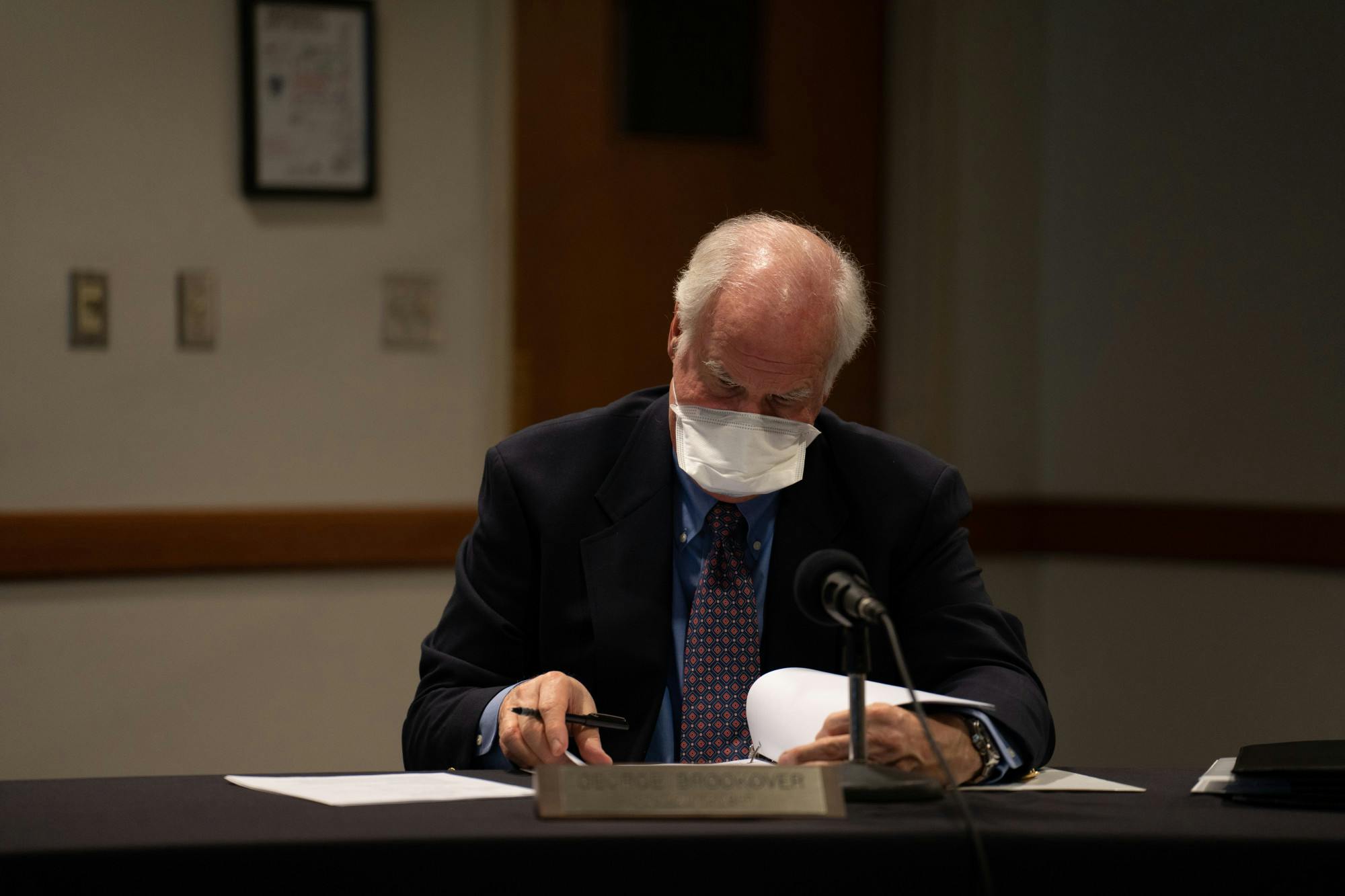In a meeting held on Tuesday, Jan.19, East Lansing City Council discussed the possibility of requiring city-provided bathrooms to offer free menstrual products. Council also discussed potential updates to the city’s livestock code.
Students from the Associated Students of Michigan State University, or ASMSU, spoke in support of the ordinance offering free menstrual products.
Neuroscience and Human Biology Junior Harsna Chahal, vice president of ASMSU’s Student Allocations Board, said that she met with city council members this fall to suggest the idea of offering free menstrual products in bathrooms.
“On a monthly basis, 21% of women lack menstrual hygiene products,” Chahal said. "Women who struggle to afford supplies resort to clothes, rags, paper towels, or children's diapers … I, along with ASMSU, support the idea of discussion item 6.3.”
All city officials present at the meeting expressed support for the ordinance.
“I think this ordinance would be a good idea for council to pass,” City Manager George Lahanas said. “It really is a small financial issue of not much note … It’s no different than stocking a bathroom with other products for people’s hygiene.”
Councilperson George Brookover said he is very much in favor of the ordinance, but that he would like a legal opinion on the scope of the ordinance before it is passed.
The discussion around free menstrual products was based on a recent ordinance adopted by the City of Ann Arbor, becoming the first U.S. city to mandate that all public restrooms require pads and tampons at no cost. However, the Ann Arbor ordinance applies to all buildings. An ordinance adopted by East Lansing City Council may only apply to municipal buildings such as public libraries and city hall.
“I took this to be our restrooms,” Lahanas said. “If council wants it to be for the broader city at large, that’s a larger issue I think that may require more analysis.”
Councilperson Dana Watson said the council should explain the city’s plans to businesses in downtown East Lansing in case businesses do want to provide these products of their own accord.
Councilperson Lisa Babcock said that she could see why some items may need to be more specific, but that she supports the policy and a possible expanded scope to cover downtown businesses.
“I’m certainly supportive of it for restrooms that the City of East Lansing controls … I think it’s good public policy,” Babcock said. “I think this would be good customer relations and a good policy for customers and employees. I don’t know that the city necessarily wants to mandate that, but I think 52% of the world’s population would say, ‘Why is this so difficult?’”
Mayor Ron Bacon also would support a broader ordinance in the future, he said, if it was phased in so that businesses have time to adjust to the new rule.
City council also discussed the possibility of updating the city’s livestock ordinance, which currently allows residents to keep up to four chickens at a single-family dwelling.
Council discussed whether other animals such as goats and ducks should be added to the livestock ordinance. Planning and Zoning Administrator Peter Menser spoke to council on the ordinance.
City council members expressed skepticism at the potential update.
“Being from the suburbs … how do people know what to do if they run into someone’s loose goat, or their sheep?” Watson said. “It could in some ways be kind of scary if you’re not used to it.”
Watson said that this possibility would be reduced in some of the city’s larger areas.
She also said that she had reviewed from another Michigan city that required individuals keeping these animals to get permission from a certain percentage of people in their neighborhood.
Bacon said that a big concern would be conflicts between neighbors.
Support student media!
Please consider donating to The State News and help fund the future of journalism.
“My big underlying concern with the really athletic sheep and goats and seeing what they can do in the wild, the kind of property damage they could do is overwhelming,” he said.
Brookover kept his comments brief.
“No, thanks,” he said.
Babcock also expressed reluctance.
“I really love my neighbors, but I might not love them so much if they had sheep or goats,” Babcock said.
Council members agreed to discuss the ordinance further at a future meeting.
Discussion
Share and discuss “City council talks free menstrual products, owning livestock at first meeting of 2022” on social media.







